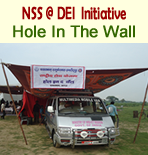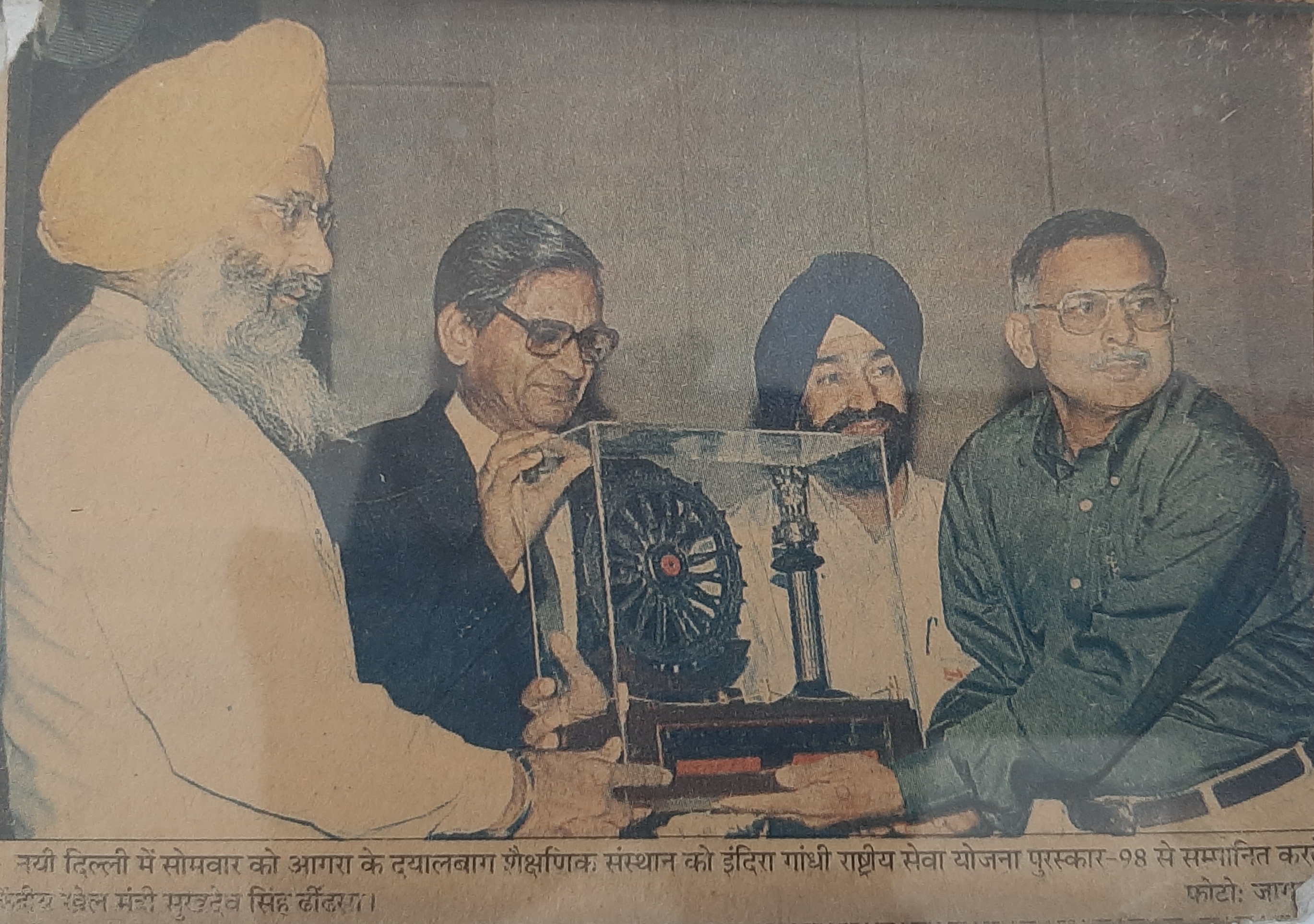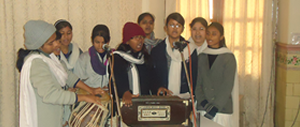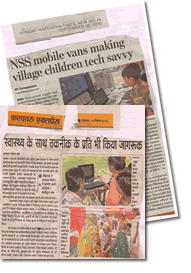National Service Scheme (NSS) was launched during the Mahatma Gandhi’s Centenary Year (1969) involving 40,000 student volunteers in 37 universities. Today, it has more than 2.6 million student volunteers spread over 198 universities and 41 (+2) Councils and implemented in 16,659 academic institutions.
AIM
The aim of National Service Scheme is “Development of the Personality of Students through Community Service”. In order to fulfill the objective, student volunteers and programme functionaries are engaged in constructive and productive programmes involving students in various awareness drives, shramdaan, social reforms, communal harmony, creation of community assets, relief work, blood donation, environmental protection, literacy programme, health education campaign, etc. Under the scheme, each volunteer contributes 240 hours of community work during a period of two years.
NSS at DEI
This Institute has been pioneer in implementing the scheme since its inception in U.P. Social service is an integral component (under Rural Development) of DEI’s programme of innovative and comprehensive undergraduate education, which combines academic excellence with social relevance.
Ambience of an active, disciplined, socially sensitive and co-operative community life and work ethic at Dayalbagh with its multi-faceted infrastructure of agriculture, education and industry, provide the basic thrust for social work in surrounding villages.
Starting with only two units of 100 students each and two project officers in 1970 the Institute has 1500 students on roll in NSS with 14 Programme Officers and a Programme Co-ordinator. With the co-ordinated effort of all the faculties, multi-pronged efforts have been made to make a more effective contribution towards rural reconstruction. Participation in N.S.S. Camp is compulsory for all students in the first semester of their course of study.





